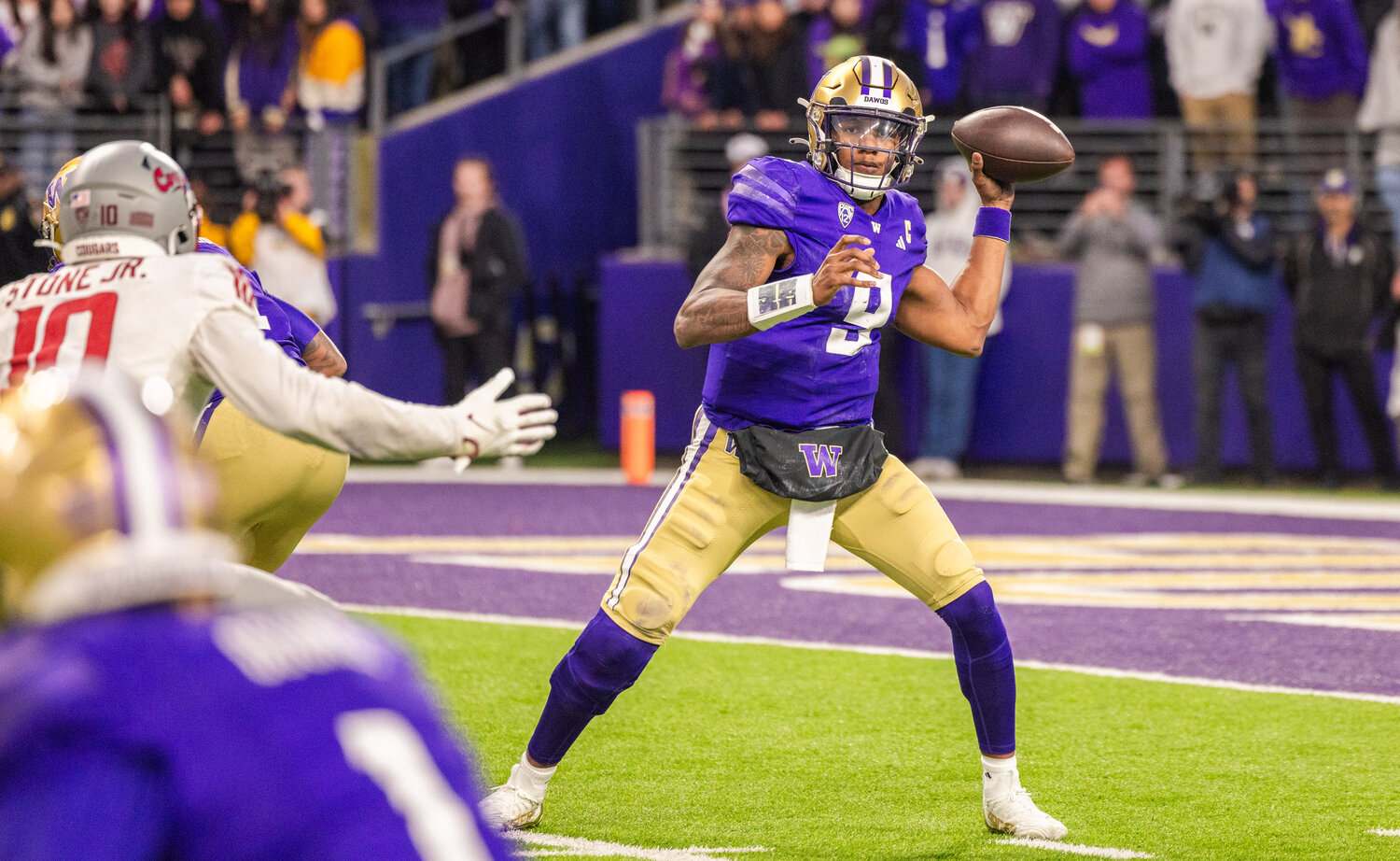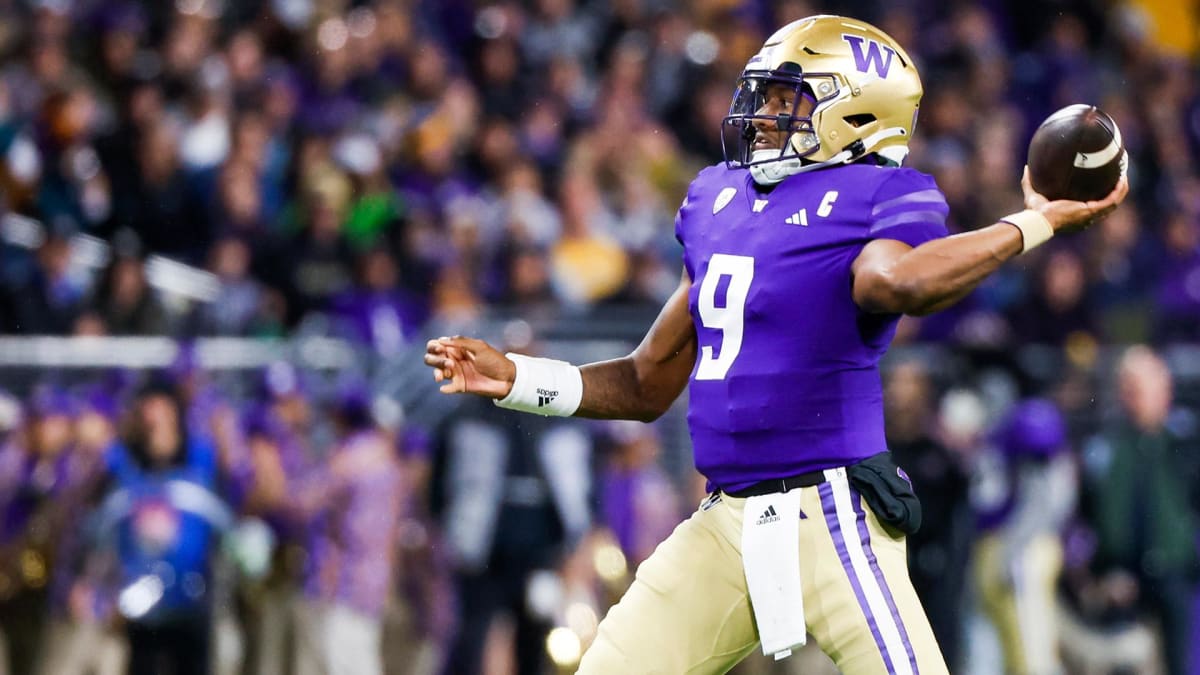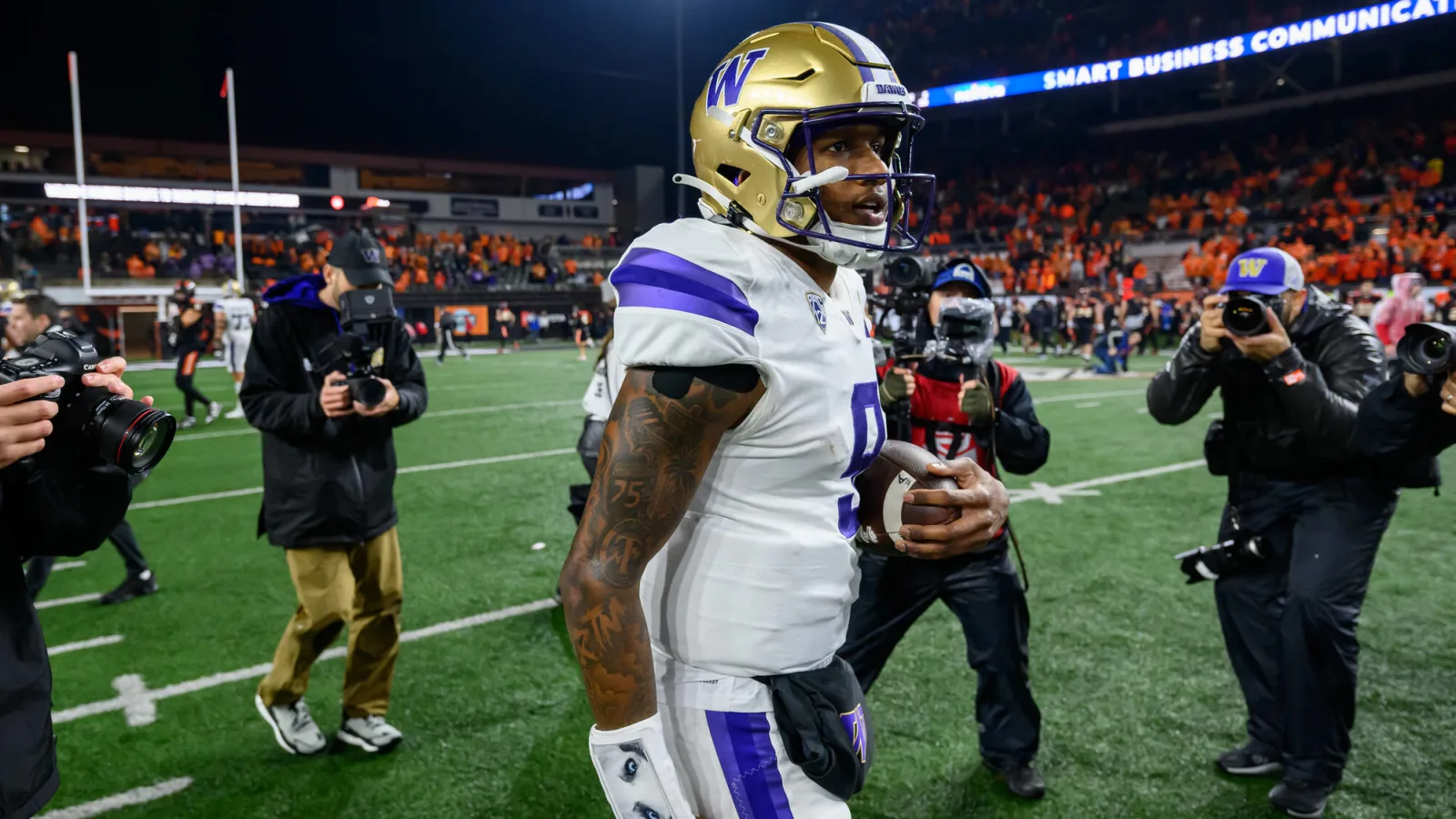Kirk Cousins, a seasoned player known for his meticulous approach, was brought on board with a hefty contract, signaling immediate goals. Meanwhile, the decision to draft Penix—a dynamic but injury-prone player from Washington—suggests long-term aspirations. This dual-quarterback strategy leaves fans and analysts alike questioning the Atlanta Falcons’ game plan.
In the labyrinth of NFL roster strategies, the Atlanta Falcons have been particularly noteworthy this offseason, sparking debates and raising eyebrows across the league. The team’s bold maneuvers in the quarterback department are a significant part of this narrative. By signing Kirk Cousins and then drafting Michael Penix Jr. with the No. 8 overall pick, Atlanta has set a complex chessboard.

Transitioning from Kirk Cousins to Michael Penix: A Strategic Play?
The Falcons’ approach is a gamble with high risks and potentially high rewards. With Kirk Cousins secured for the immediate future and Penix as the anointed future leader, Atlanta’s management seems to be playing a balancing act between established reliability and youthful potential.
Mike Florio from Pro Football Talk highlights an extreme scenario where Atlanta could exit Cousins’ deal early, should he diverge from team protocols regarding his Achilles rehab.
Terry Fontenot made the right decision drafting Michael Penix Jr. pic.twitter.com/l4s0e8c5sO
— The Right Time with Bomani Jones (@righttimebomani) May 5, 2024
However, such a deviation from Kirk Cousins is unlikely given his disciplined nature. More realistically, the team could look to transition leadership to Penix as early as 2025, assuming he’s deemed ready to take the reins.
This scenario would necessitate finding a trade partner for Cousins next offseason, a feasible strategy given the financial implications. While Cousins’ salary stands at $27.5 million for 2025, the potential dead money hit pre-June 1 would be $37.5 million—a significant but not insurmountable obstacle for the Falcons.

The Atlanta Falcons’ Blueprint: Lessons from Green Bay Packers
The Falcons’ strategy mirrors a familiar playbook in the NFL, where teams have historically allowed first-round quarterbacks time to develop behind established starters. This model was effectively utilized by the Green Bay Packers with Aaron Rodgers and Jordan Love. By potentially having Penix sit for two seasons, Atlanta is not only safeguarding their investment but also allowing him ample time to fully recover from past injuries and adapt to the professional game’s rigors.

Looking Ahead: What’s Next for the Atlanta Falcons?
As the 2025 season approaches, all eyes will be on how the Falcons manage their quarterback dynamics. Will Cousins prove his worth and retain his position, or will Penix, overcoming his history of injuries, rise to fulfill the expectations set by his high draft pick? Only time will tell, but one thing is certain: the Falcons are setting up a narrative filled with potential twists and drama, typical of the high-stakes nature of NFL team management.
In conclusion, while Florio’s loophole scenario for escaping Cousins’ contract may be implausible, it underscores the precariousness and intrigue surrounding Atlanta’s current quarterback strategy. The next couple of seasons will be crucial in determining whether this bold strategy will lead to success on the field or necessitate yet another reevaluation of the team’s direction in the high-stakes NFL environment.










